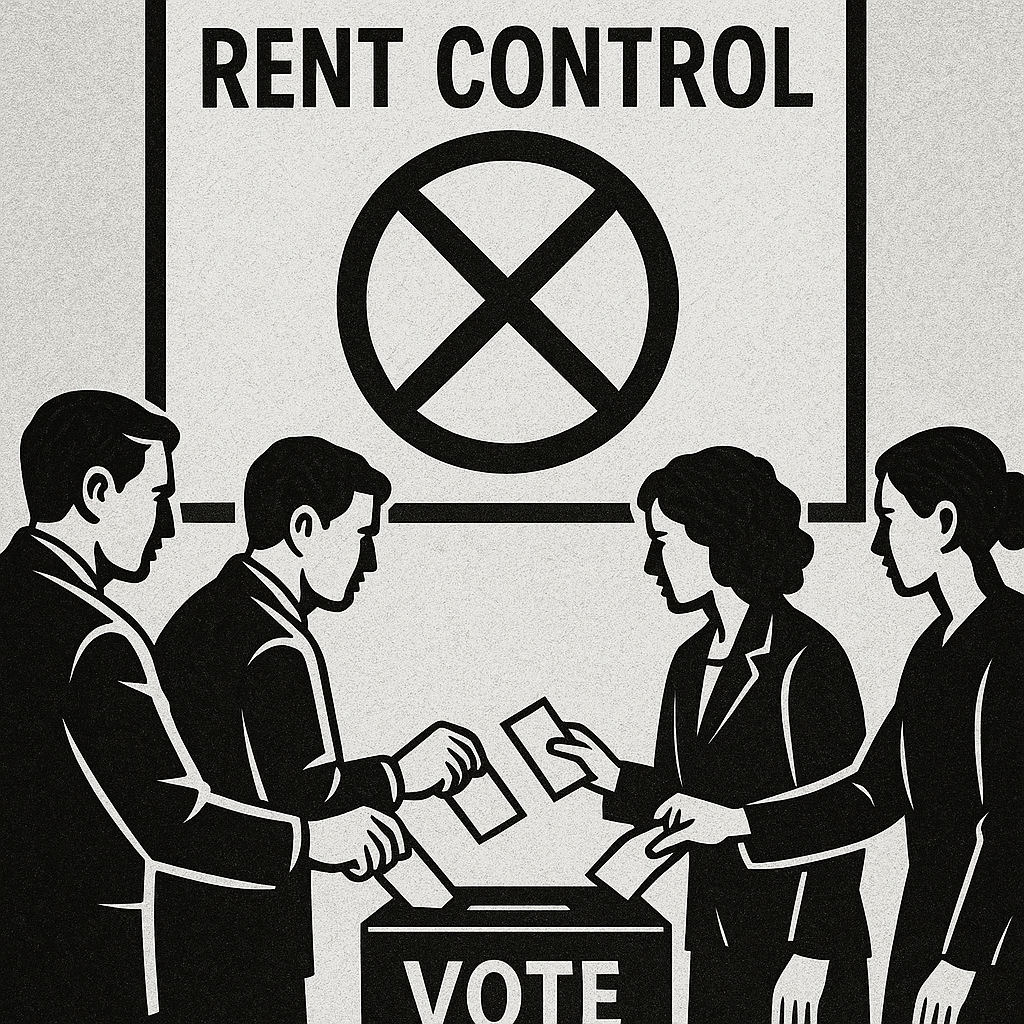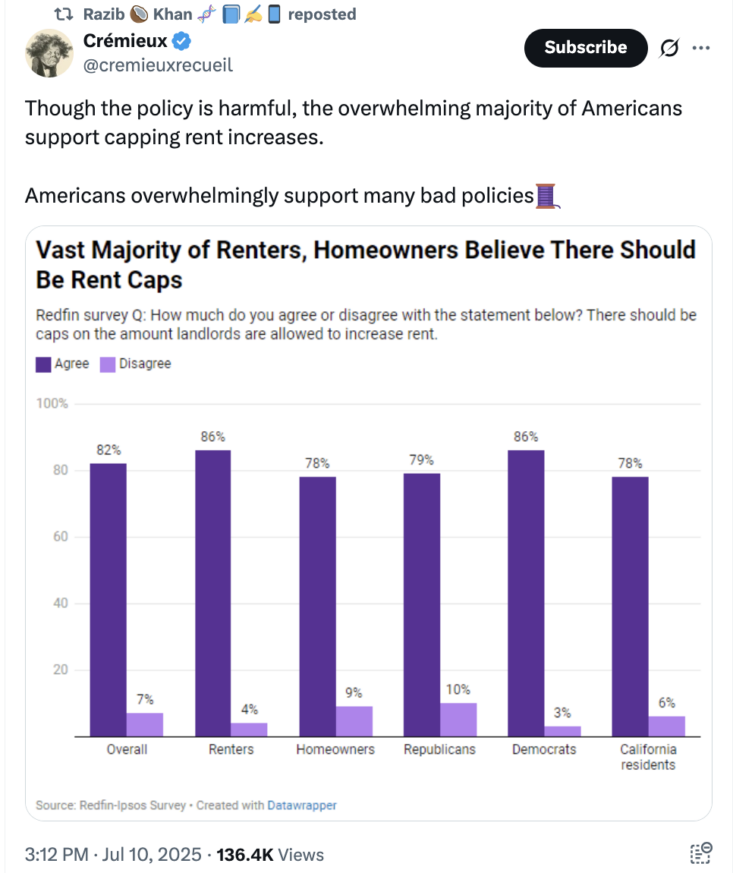
Consider the following tweet:

When I moved to Massachusetts in 1982, major cities such as Boston, Cambridge, and Brookline had rent control. Massachusetts is also one of the most Democratic states in the country. Today, Massachusetts doesn’t have rent control. So how did that happen?
In 1994, Massachusetts had a referendum on rent control, and voters opted to ban it statewide. This is an almost perfect illustration of why I don’t trust public opinion polls on policy issues. Polls are useful when it comes to clear issues such as which of two candidates people intend to vote for. But they are not a good way of ascertaining public opinion on policy issues. If you looked at the poll results above, you might assume that rent control has been adopted almost everywhere in America, even in highly Republican states.
People answer questions on the basis of whether something “sounds bad”. Should people be allowed to advocate Nazi ideologies? Many people will say “no”. Is it important for American to allow freedom of speech, even for unpopular ideas? Many people will say “yes”. So which of the two is the public’s “actual belief”? I suspect that most Americans would oppose repealing the 1st Amendment to the Constitution.
Imagine an elderly couple living on Social Security who pay $1200/month in rent. Now the landlord comes along and says that he plans to raise the rent to $2800/month. That sounds bad. So when the public is asked whether there should be limits as to how sharply a landlord can raise the rent, they tend to say yes. But rent control advocates know that this isn’t enough to get them what they want, and actual rent control laws are often much more restrictive than “annual rent increases should not exceed 10%.”
America is a democracy. Based on poll numbers, you might expect all sorts of public policies that we do not currently see. I suspect that most people are opposed to gas stations charging $8/gallon for gasoline. But we do not currently have any laws banning retailers from charging $8/gallon.

READER COMMENTS
steve
Jul 23 2025 at 2:38pm
A lot has to do with how the questions are asked as well as how people, as you note, interpret them. I mostly think these kinds of questions are stuff most people rarely even think about so they mostly give pretty offhand answers*. They also tend to think of what is best for “me” and not everyone. It would be awesome if my rent never increased, who cares about everyone else.
*Its actually worse than that right now as not only do people not think about it I think they just give whatever answer their tribe is supporting.
Steve
Garrett
Jul 23 2025 at 2:43pm
Scott, you’ve made this point over the years with several examples and I’ve been convinced for a long time. It seems then the most important thing about public opinion polls is the degree to which they influence politicians.
David Henderson
Jul 23 2025 at 5:17pm
Well put.
David Seltzer
Jul 24 2025 at 10:41am
Scott: Nice post. The glaring omission in the survey, it didn’t include landlords or developers. Were they included in “Overall 82%?”
Matthias
Jul 25 2025 at 7:41am
I see what you are getting at, but if you weigh every person equally, I doubt it would change the results much.
David Seltzer
Jul 25 2025 at 8:54am
Matthias, yes.
Robert EV
Jul 26 2025 at 1:54pm
What percent of landlords and developers are neither homeowners nor renters? I could imagine there are a few, but people with such unusual lifestyles are very rare. Probably far less than the 1% that the results are being rounded to.